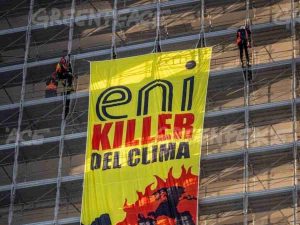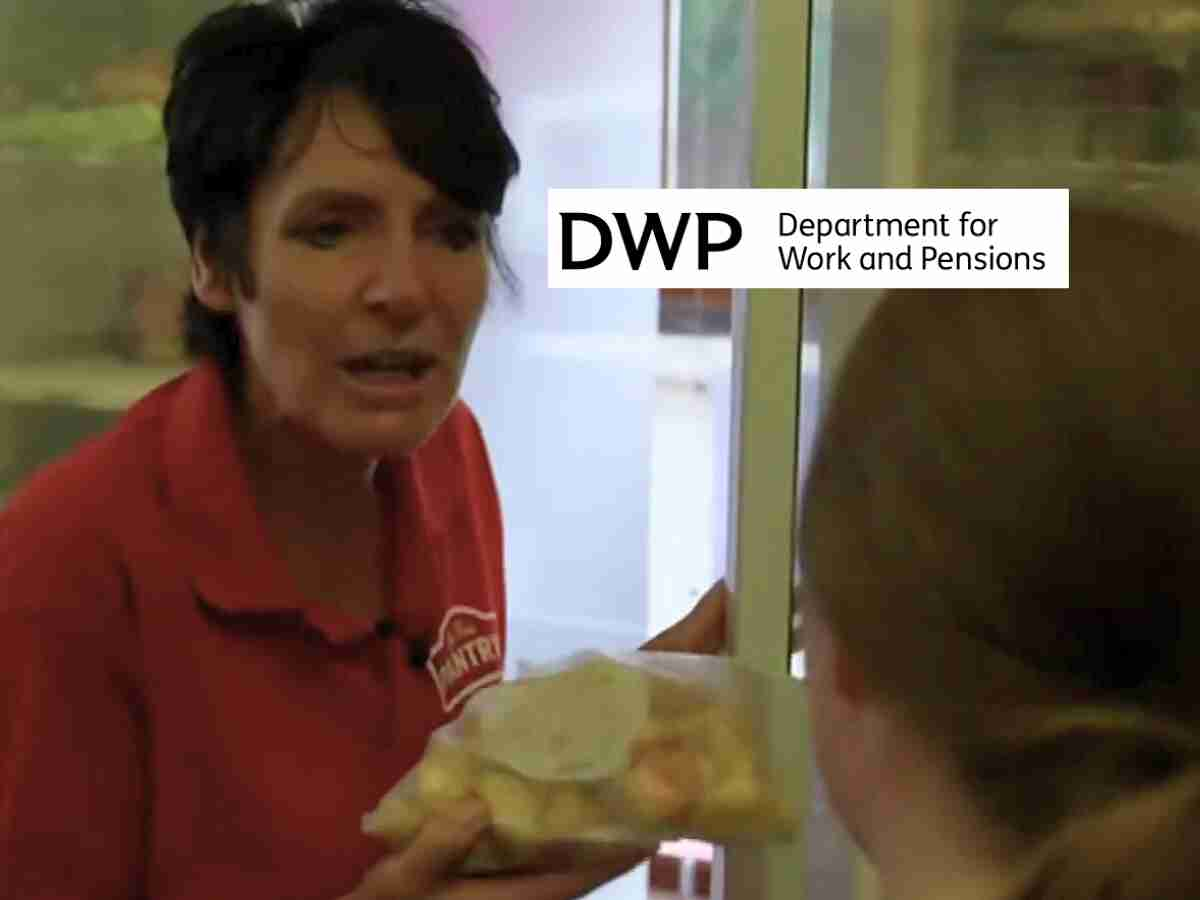Hurricane Milton felled trees, tore roofs off buildings, and flooded streets, leaving residents of the Florida coast surveying a trail of destruction, in a state still reeling from another massive storm two weeks earlier. However, the human cost was accompanied by a political storm – with Greenpeace also weighing in on the impact of the climate crisis.
Hurricane Milton: wreaking havoc
Over three million Florida homes and businesses were without power after the weather front made landfall as Category 3 storm Hurricane Milton on Wednesday 9 October near Siesta Key on the US state’s western coast.
As the eye of the storm blew past the peninsula, communities were still contending with strong winds, heavy rainfall, and possible flash floods.
Hurricane Milton triggered tornadoes before its arrival, with unconfirmed reports of multiple fatalities after one twister struck a retirement community on Florida’s east coast.
“We had multiple tornadoes touch down here in the Spanish Lakes community and we have lost some life,” St. Lucie County sheriff Keith Pearson told WPBF News.
Pearson also posted a video on his department’s Facebook page warning residents to seek shelter, showing their “10,000 square-foot red-iron building” that houses police patrol cars torn apart by a tornado.
“The difficulty with the tornadoes is that we don’t know where they’re going to land,” St. Lucie County commissioner Chris Dzadovsky told reporters.
President Joe Biden was briefed on the “initial impacts” of Milton, the White House said, as responses from Democrats and Republicans are likely to be closely scrutinized with just four weeks until the tightly contested US presidential election.
3.1 million without power
Milton weakened to a Category 1 storm but was still registering powerful winds of up to 85 miles (140 kilometers) per hour on Thursday 10 October morning, according to the National Hurricane Center.
At least 3.1 million households and businesses had lost power in the state by late Wednesday, according to tracker poweroutage.us.
The storm tore through the roof of the home stadium of Major League Baseball team the Tampa Bay Rays, exposing the metal railing underneath as large panels were pulled off and sent flying, video footage showed.
Milton is expected to tear inland, with tourist hub Orlando – home to Disney World, which has closed for the storm – in its path.
Scientists say extreme rainfall and destructive storms are occurring with greater severity and frequency as temperatures rise due to climate change. As warmer ocean surfaces release more water vapor, they provide more energy for storms as they form.
In cities up and down Florida’s western coast, the wind howled furiously and torrential rain fell as people took shelter wherever they could.
In the city of Sarasota, near Siesta Key, gusts of wind blew panes of glass from buildings on the waterfront. The streets were deserted and trees swayed almost horizontal, while businesses were shuttered and sandbagged.
On a wooden board fixed against a window of an old red brick building, someone wrote: “Be kind Milton.”
The airports in Tampa and Sarasota were closed until further notice.
Still recovering from Helene
Just before Hurricane Milton made landfall, Florida governor Ron DeSantis urged state residents who had not evacuated to “stay inside and stay off the roads,” adding:
Flood waters and rushing storm surge are very dangerous.
Milton struck just two weeks after another major hurricane, Helene, devastated Florida and other southeastern states, with emergency crews still working to provide relief.
With at least 235 people killed, Helene was the second-deadliest hurricane to hit the continental United States in more than half a century after Katrina, which ravaged the state of Louisiana in 2005, claiming nearly 1,400 lives.
Randy Prior, who owns a pool business, says he planned to ride out Milton at home after recently toughing out Hurricane Helene, which flooded Florida before wreaking havoc across remote areas further inland such as western North Carolina:
I am nervous. This is something we just went through with the other storm – ground saturated, still recovering from that.
Political chaos
US presidential election candidate Donald Trump has sought political advantage by falsely saying storm aid for Hurricane Milton (and Helene) is being channeled away from residents, many of whom are supporters of his Republican Party, and toward migrants.
At the White House on Wednesday, president Biden slammed Trump’s “onslaught of lies”:
There’s been a reckless, irresponsible and relentless promotion of disinformation and outright lies.
Vice president Kamala Harris, who is taking on Trump at the polls on 5 November, echoed Biden’s criticisms in a separate telephone interview with CNN:
It is dangerous, it is unconscionable, frankly, that anyone who’d consider themselves a leader would mislead desperate people to the point that those desperate people would not receive the aid to which they are entitled.
Meanwhile Greenpeace weighed in on how the climate crisis is making hurricanes like Milton and Helene even worse.
US government’s fossil fuel funding made Hurricane Milton even worse
John Noël, Greenpeace USA senior climate campaigner said of Hurricane Milton:
For the second time in as many weeks, lives will be lost and upended by yet another hurricane supercharged by fossil fuel-driven climate change. But while millions of people pick through the wreckage of their communities, the oil and gas companies responsible are banking billions while scrambling to dig up ever more climate-wrecking fossil fuels.
With damage from Hurricane Helene already estimated at a quarter of a trillion dollars ($250bn) and Hurricane Milton bearing down on Florida, this could be the costliest hurricane season in history. Ordinary people cannot be left to pick up the tab: with US elections just weeks away, presidential candidates should stop asking Big Oil for campaign donations and instead force them to pay for the climate damages devastating our communities.”
The total economic loss from the humanitarian crisis created by the previous Hurricane Helene, including damages to infrastructure, healthcare costs, blackouts, and business disruptions, was estimated by AccuWeather to be as high as $250 billion.
Rapid analysis by a team of leading scientists at World Weather Attribution found that climate change worsened the heavy rainfall and winds generated by Hurricane Helene, leaving at least 227 people dead across six states.
Rather than taking responsibility for their leading role in climate change, oil and gas majors such as Shell, Energy Transfer, ENI and TotalEnergies have resorted to intimidation lawsuits against member organisations in the Greenpeace network and other organisations who warn against the continued expansion of fossil fuels.
Every year the U.S provides at least $20 billion in direct subsidies to the fossil fuel industry. Greenpeace is calling on governments to end these handouts and make big oil and gas polluters stop drilling and start paying for the climate damages people face around the world.
Featured image via the Canary
Additional reporting via Agence France-Presse




